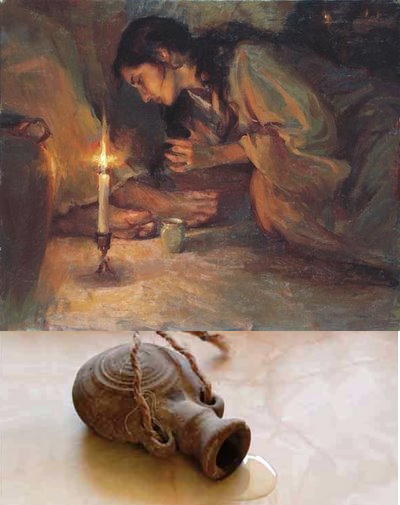Red Rock News March 28, 2025

- Rev. Dona Johnson |April 6, 2025
It was coming to an end for Jesus. To come to Jerusalem for the Passover was quite a courageous thing for Jesus to do. The authorities had already labeled him a heretic and an outlaw. They were waiting for him.
Jesus stopped at Bethany, a small town outside Jerusalem for a meal at the house of Martha, Mary and their brother Lazarus. It was during that same meal that Mary took a very expensive ointment, spikenard, an aromatic herb and anointed Jesus’ feet (John 12:1-8). As Mary expresses her love for Jesus, we also get a clear picture of what humility looks like. Whereas kings are anointed on the head, the dead are anointed on the feet as part of their preparation for burial. Did Mary know Jesus was going to die soon, or was she proclaiming Jesus is the one in whom death becomes life? Probably both, Mary had witnessed Jesus’ calling to Lazarus’s dead body in the dark tomb and watched him walk out alive—breathing again. Judas was also there. He was closely watching Mary rub Jesus’ feet with the expensive perfume. He asserted, “Why not sell the perfume and give the proceeds to the poor?” This was no surprise. Judas Iscariot’s chintzy comment only
highlighted his true character. Judas was known to be a pilferer. And even though he was one of Jesus’ twelve disciples, he later sold Jesus’ whereabouts to the authorities for a bag of coins. Judas was an embittered man and he took an embittered view of things. He probably did not like his lot in life and that caused him to react in a mean-spirited way to things that were good.
There are always those people who are so tight-fisted and frugal they take the joy right out of giving. Generosity and gratitude are not in everyone’s vocabulary, let alone their hearts. But for Mary, her affection, her extravagant love for Jesus far outweighed the price of an expensive bottle of perfume. Mary took the most expensive possession she had and spent it all on Jesus. Love is not love if it has to count the costs. When we truly love someone, we are willing to give them almost anything—an extravagant gift, or give them a good deal of our time and demonstrate to them that we really do care.
You see we live in a world that by its very nature is transactional. We pay for something (service or commodity), or we do something for someone and we automatically expect to get something back. But genuine love is love that gives and then gives again without counting the cost and expecting a return on one’s investment. Genuine love rejoices in opportunities to give. It is a natural, not a forced response. How often do we calculate consciously or unconsciously our giving by what we expect to get back?
We end this scene with Jesus responding to those present, “You will always have the poor among you, but you will not always have me.” Jesus would not live to old age. His time was short. The time for any action of devotion or words of love for him is much shorter than any of sitting around the table think. It too is a powerful reminder to us all, to express love towards people ‘now,’ while you have them in your midst. For, who knows where you or I will be tomorrow and tomorrow may be too late.
Prayer: Lord, help me to love generously, with little
- Rev. Dona Johnson |April 6, 2025
